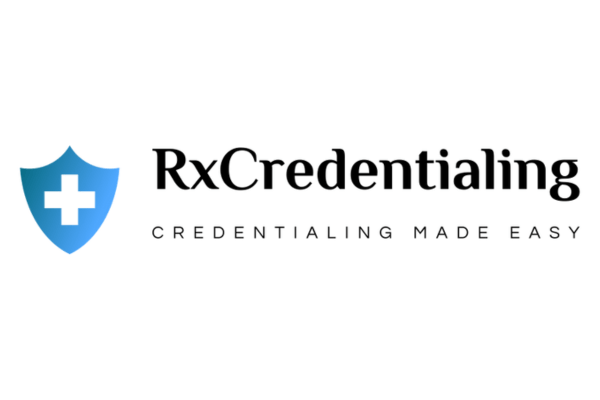How does mental health billing differ from medical billing?
Mental health billing differs from medical billing in several ways:
1. Types of services:
Mental health services often involve therapy sessions, counseling, and behavioral health assessments, whereas medical services involve physical exams, diagnostic tests, surgeries, and procedures.
2. Billing codes:
Mental health providers use specific billing codes for mental health services, such as those outlined in the Current Procedural Terminology (CPT) manual, while medical providers use different codes for medical services.
3. Insurance coverage:
Insurance coverage for mental health services can vary from coverage for medical services. Mental health services may have different copayments, deductibles, and coverage limits compared to medical services.
4. Credentialing requirements:
Mental health providers may need specific credentials or certifications to bill for mental health services, such as licensing as a psychologist, therapist, or counselor. Medical providers must also have appropriate credentials and certifications, but they may differ based on the type of medical services being provided.
5. Reimbursement rates:
Reimbursement rates for mental health services can vary from those for medical services. Mental health providers may receive lower reimbursement rates for services compared to medical providers.
6. Documentation requirements:
Mental health billing often requires detailed documentation of therapy sessions, assessments, and treatment plans, whereas medical billing may require documentation of physical exams, diagnoses, and treatments.
Good documentation is essential for both types of billing to ensure accurate reimbursement and compliance with regulations.
Best practices for billing mental health services

1. Have a clear and transparent fee structure:
Clearly outline your fees and payment policies to clients before their first session and have them sign a consent form acknowledging these terms. This will help prevent misunderstandings and disputes over billing later on.
2. Verify insurance coverage:
Before providing services, verify your clients’ insurance coverage and benefits to ensure you are billing correctly and maximizing reimbursement. Be familiar with the specific requirements of each insurance plan and submit claims promptly.
3. Document services accurately:
Thoroughly document each session and keep detailed records of the services provided, including the date, time, type of service, duration, and any relevant diagnoses or treatment plans. Accurate documentation is critical for billing purposes and ensures you can support your claims if audited.
4. Use electronic billing systems:
Consider using electronic billing systems to streamline the billing process and reduce the risk of errors. Electronic systems can also help track claims, payments, and denials more efficiently and provide reports that can help you analyze your billing patterns and identify areas for improvement.
5. Follow up on outstanding payments:
Be proactive in following up on unpaid or denied claims to ensure timely reimbursement. Keep track of outstanding balances and follow up with clients, insurance companies, or third-party payers as needed to resolve any billing issues promptly.
6. Stay informed on billing regulations:
Stay current on the latest billing regulations and guidelines for mental health services to ensure compliance and avoid potential billing errors or fraud. Consider attending continuing education courses or consulting with a billing specialist to stay updated on industry best practices.
7. Provide clear invoices and statements:
Provide clients with clear and easy-to-understand invoices and statements that clearly outline the services provided, the amount billed, any insurance payments or adjustments, and the client’s responsibility for payment. This will help avoid confusion and facilitate timely payment.
8. Advocate for your clients:
Be an advocate for your clients in navigating the complexities of insurance reimbursement and billing. Help clients understand their insurance coverage, assist them in resolving billing disputes or denials, and provide support in exploring alternative payment options if needed.
How do you bill for mental health services?

Billing for mental health services typically involves submitting a claim to the patient’s insurance company or billing the patient directly if they are paying out of pocket.
The specific process for billing mental health services may vary depending on the insurance company and the type of services provided.
Some common steps in the billing process for mental health services include:
1. Verify insurance coverage:
Before providing services, it’s important to verify the patient’s insurance coverage and understand their benefits. This will help determine the patient’s out-of-pocket costs and any specific requirements from the insurance company.
2. Obtain necessary information:
Gather all the necessary information needed to submit a claim, including the patient’s name, insurance ID number, and date of birth. It’s also important to include the diagnosis code, procedure code, and any other relevant information.
3. Submit claims:
Once the necessary information is gathered, submit the claims to the patient’s insurance company. This can typically be done electronically through a billing software or manually by filling out a paper claim form.
4. Monitor payments:
Keep track of the status of submitted claims and follow up with the insurance company if there are any delays or denials. It’s important to ensure that claims are processed and payments are received in a timely manner.
5. Billing for out-of-pocket patients:
If a patient is paying out of pocket, provide them with an invoice for the services rendered. Be transparent about costs and payment expectations, and work with the patient to establish a payment plan if needed.
Overall, it’s important to have a clear understanding of the billing process for mental health services and to communicate effectively with patients about their financial responsibilities.
Some mental health providers may also offer sliding scale fees or other financial assistance options for patients who may have difficulty affording services.
How to Handle Mental Health Billing Denials, Rejections, and Appeals

1. Review the denial or rejection details:
Carefully review the denial or rejection notification to understand the reason for it. This could be due to incorrect coding, lack of documentation, or other administrative issues.
2. Double-check the billing information:
Ensure that all billing information, including patient details, insurance information, and service provided, are correctly filled out and documented.
3. Correct any errors:
If the denial or rejection was due to incorrect coding or documentation, make the necessary corrections and resubmit the claim.
4. Submit an appeal:
If the denial or rejection was unjustified, or if you believe it was made in error, you can submit an appeal to the insurance company. Provide any additional documentation or information that supports your claim.
5. Follow up with the insurance company:
Make sure to follow up with the insurance company regularly to check on the status of your appeal and ensure that it is being processed in a timely manner.
6. Seek assistance:
If you are having trouble navigating the appeals process, consider seeking assistance from a billing specialist or consultant who can help guide you through the process.
7. Keep detailed records:
Keep detailed records of all communications with the insurance company, including phone calls, emails, and letters, as well as any supporting documentation provided.
8. Know your rights:
Familiarize yourself with your rights as a healthcare provider and the rights of your patients when it comes to mental health billing.
This can help you advocate for yourself and your patients in the event of a denial or rejection.
The Three Most Often Used Mental Health CPT Codes
1. 90834: Psychotherapy, 45 minutes with patient
This code is used for individual psychotherapy sessions that last for 45 minutes with a patient. It is one of the most commonly used CPT codes for mental health services.
2. 90837: Psychotherapy, 60 minutes with patient
This code is used for longer individual psychotherapy sessions that last for 60 minutes with a patient. It is often used for more intensive therapy sessions or for patients who require longer sessions.
3. 90847: Family psychotherapy (without patient present)
This code is used for family therapy sessions where the patient is not present. It is commonly used to address family dynamics, communication issues, and other interpersonal challenges within the family unit.
Minimum Required Patient Information
1. Full name
2. Date of birth
3. Gender
4. Contact information (phone number, address)
5. Emergency contact information
6. Insurance information
7. Medical history
8. Current medications
9. Allergies
10. Primary care physician
2. Perform a Verification of Benefits
To perform a verification of benefits, follow these steps:
1. Contact the patient’s insurance provider either by phone or through the insurance company’s online portal.
2. Provide the necessary information such as the patient’s name, date of birth, insurance ID number, and any other required details.
3. Ask the insurance representative to verify the patient’s eligibility, coverage details, deductibles, copayments, maximum benefits, and any restrictions or limitations on coverage.
4. Take notes on the information provided, including the date of the verification and the name of the representative you spoke with.
5. If necessary, request a written confirmation of benefits from the insurance company for documentation purposes.
6. Use the verified information to determine the patient’s out-of-pocket costs for services, ensure proper billing to the insurance company, and inform the patient of their coverage and financial responsibilities.
7. Keep a record of the verification of benefits to refer back to during the billing and claims process, and to provide documentation in case of any disputes with the insurance company.
How to Read Mental Health Eligibility Verification Data
Reading mental health eligibility verification data can seem overwhelming at first, but breaking it down into smaller pieces can make it easier to understand.
Here are some steps you can take to read mental health eligibility verification data:
1. Understand the basic information:
Start by looking at the basic information provided in the verification data, such as the patient’s name, date of birth, insurance information, and the date of the verification.
2. Check the services covered:
Look for information on the services or treatments that are covered by the patient’s insurance plan. This may include details on the types of therapy, medication, or other interventions that are eligible for coverage.
3. Review the provider information:
Make sure to check for details on the mental health provider, such as their name, contact information, and whether they are in-network or out-of-network for the patient’s insurance plan.
4. Understand the limitations:
Pay attention to any limitations or restrictions mentioned in the verification data. This could include information on visit limits, copayments, or other factors that may impact the patient’s access to mental health services.
5. Identify any additional requirements:
Look for any additional requirements that may be necessary for the patient to receive coverage for mental health services, such as pre-authorization or referrals from a primary care physician.
6. Ask for clarification if needed:
If you come across any information that you are not sure about or need more clarification on, don’t hesitate to reach out to the insurance company or mental health provider for more information.
By following these steps, you can more easily navigate and understand mental health eligibility verification data to ensure that patients receive the care they need.
3. Submit Claims Properly
When submitting claims properly, there are a few key steps to keep in mind:
1. Make sure all necessary information is included:
This includes the patient’s name and insurance ID, the date of service, the provider’s name and information, a description of the services rendered, and any relevant diagnosis or procedure codes.
2. Verify coverage and eligibility:
Before submitting a claim, it’s important to verify that the patient’s insurance coverage is active and that the services being billed are covered under their plan. This can help prevent claim rejections or denials.
3. Use correct codes:
Be sure to use the correct diagnosis and procedure codes when submitting claims. Using outdated or incorrect codes can lead to claim denials or delays in payment.
4. Submit claims in a timely manner:
It’s important to submit claims promptly to avoid any potential delays in payment. Most insurance companies have specific timelines for when claims must be submitted.
5. Follow up on unpaid claims:
If a claim is denied or not paid in a timely manner, it’s important to follow up with the insurance company to determine the reason for the denial and to resubmit the claim if necessary.
By following these steps and guidelines, healthcare providers can ensure that claims are submitted accurately and promptly, leading to faster reimbursement and better cash flow for their practice.
5. Outsource Mental Health Billing Services
Outsourcing mental health billing services can be beneficial for mental health practices that are looking to streamline their billing process and improve efficiency. By outsourcing this task to a specialized billing service, mental health providers can reduce administrative burden, ensure accurate and timely claims submission, and maximize revenue collection.
Some benefits of outsourcing mental health billing services include:
1. Expertise:
Professional billing services have expertise in mental health billing codes, regulations, and processes. They can navigate complex billing rules and regulations to ensure accurate claims submission and faster reimbursement.
2. Cost-effective:
Outsourcing billing services can be more cost-effective than hiring and training in-house billing staff. It eliminates overhead costs associated with payroll, benefits, and ongoing staff training.
3. Improved cash flow:
Outsourcing billing services can expedite the billing process and reduce claim denials, leading to a more consistent cash flow for mental health practices.
4. Compliance:
Professional billing services are knowledgeable about industry regulations and can ensure compliance with billing and coding requirements. This reduces the risk of potential audit penalties and fraudulent claims.
5. Focus on patient care:
By delegating billing tasks to a dedicated service provider, mental health providers can focus on delivering quality care to their patients without the distractions of billing and administrative tasks.
Overall, outsourcing mental health billing services can help mental health practices improve operational efficiency, increase revenue, and enhance overall practice management.





